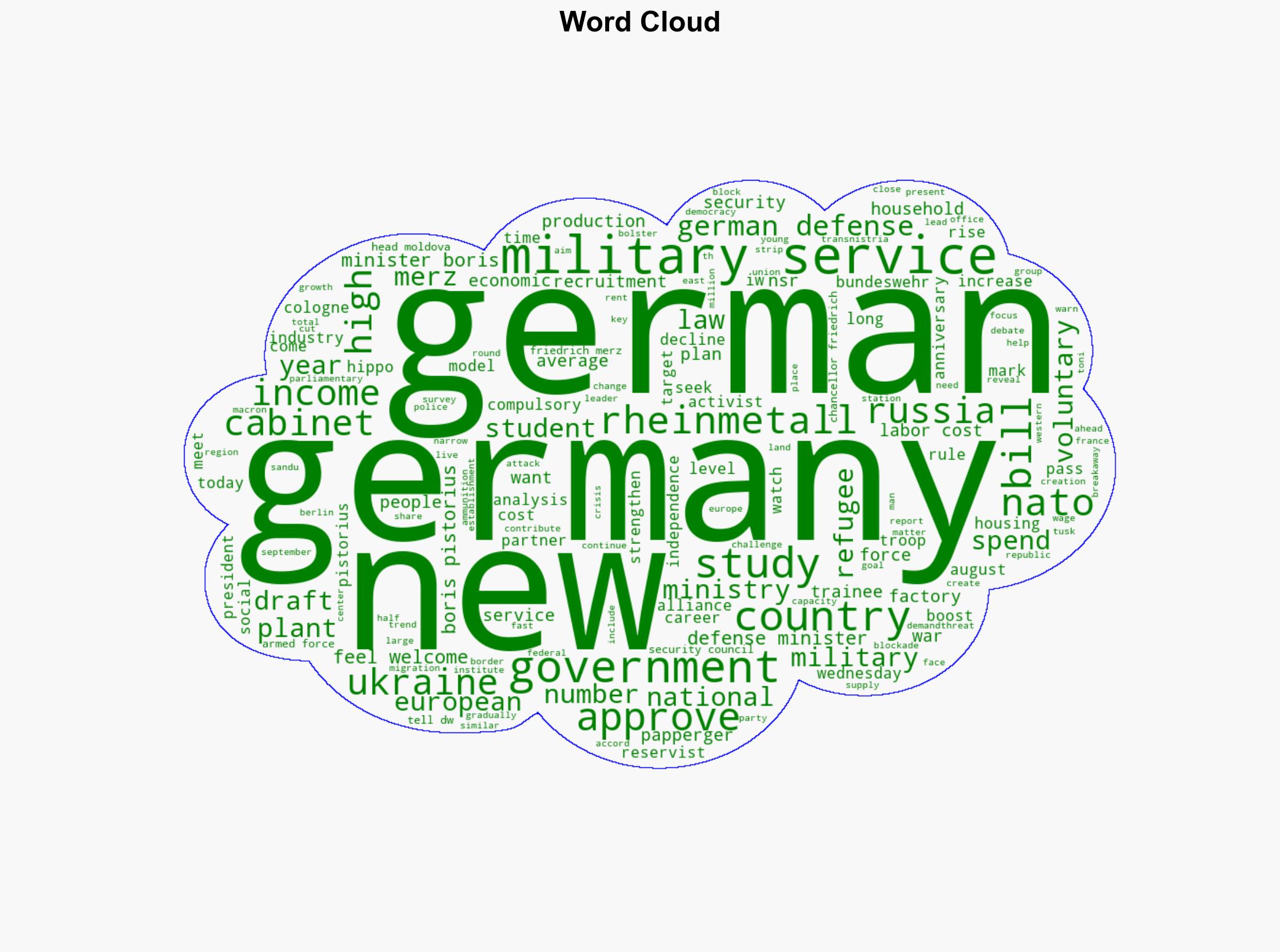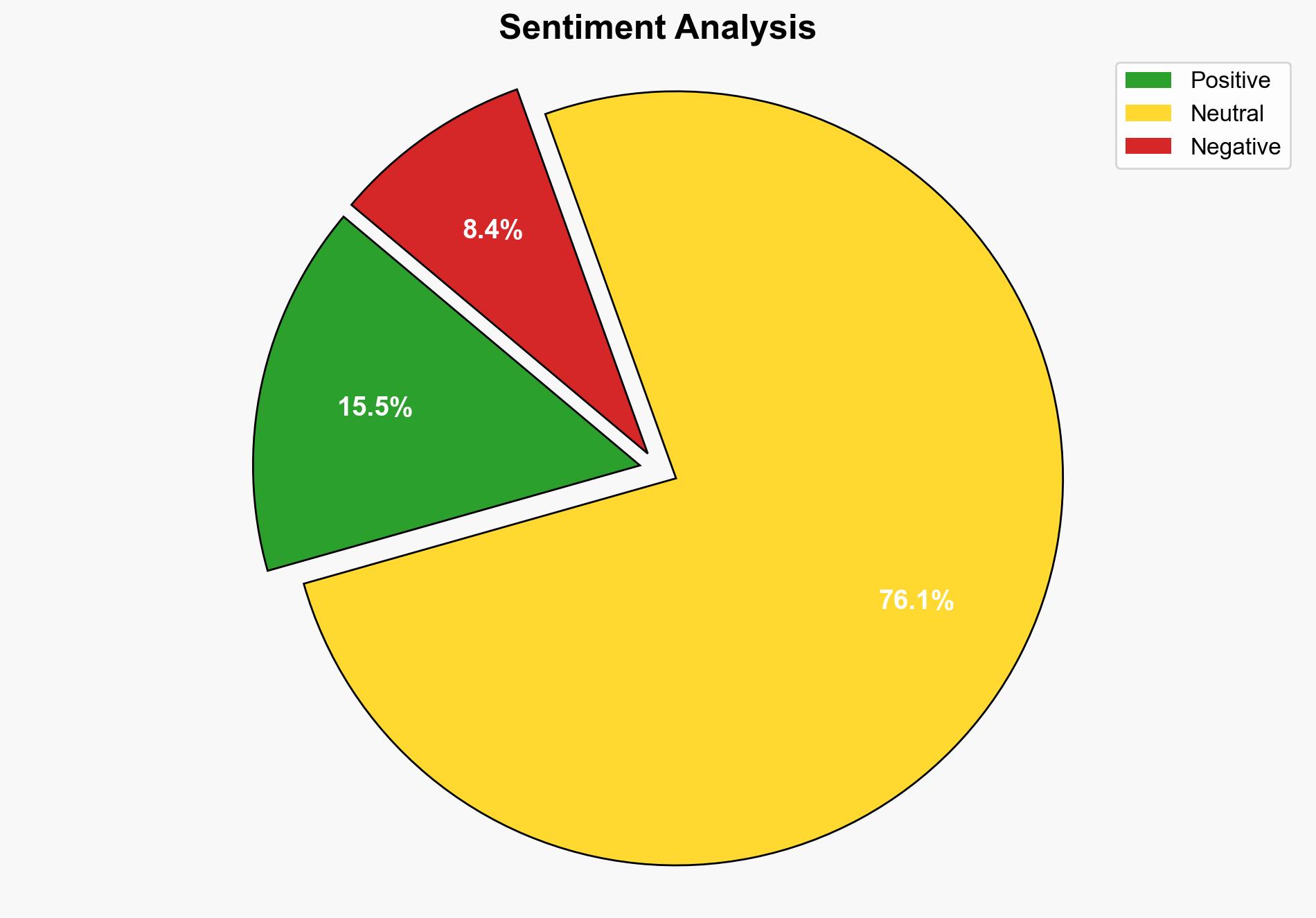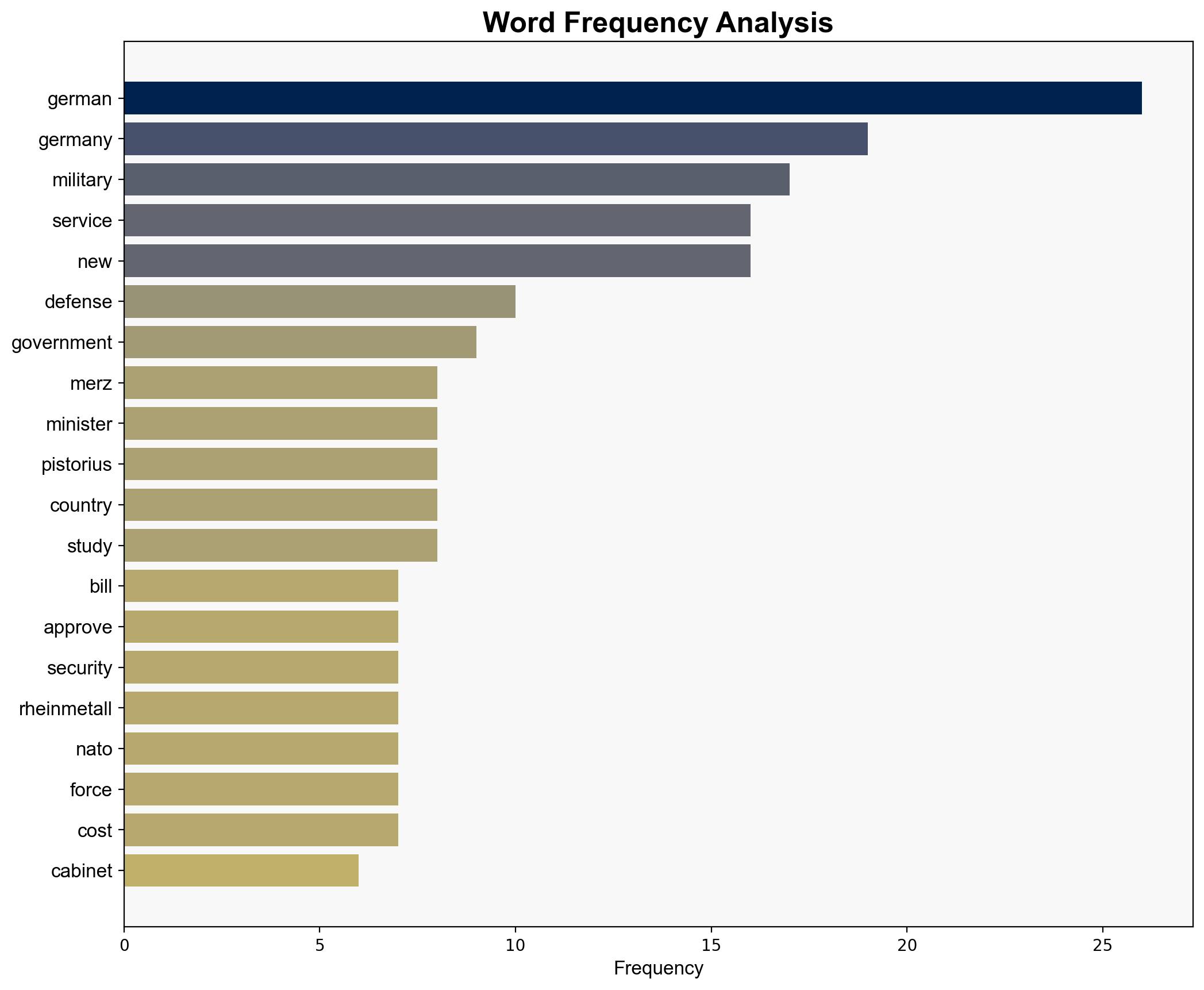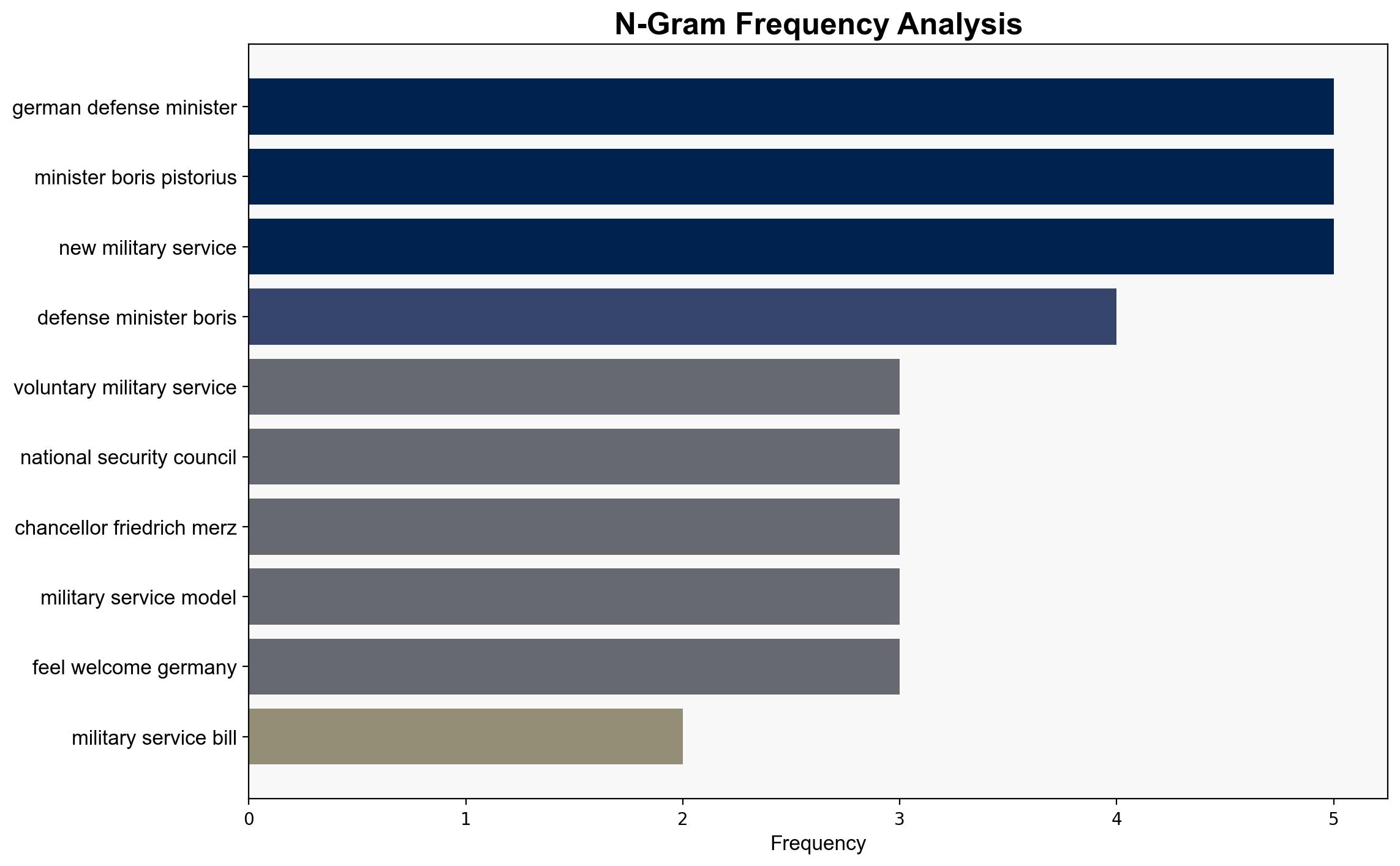German government passes military service bill – DW (English)
Published on: 2025-08-27
Intelligence Report: German government passes military service bill – DW (English)
1. BLUF (Bottom Line Up Front)
The German government’s approval of a voluntary military service bill indicates a strategic shift towards bolstering national defense capabilities. The most supported hypothesis is that this move is primarily aimed at enhancing Germany’s military readiness in response to regional security challenges, particularly the conflict in Ukraine. Confidence level: Moderate. Recommended action: Monitor subsequent recruitment trends and military capacity developments to assess the effectiveness of this policy shift.
2. Competing Hypotheses
1. **Hypothesis A**: The military service bill is a strategic response to increased security threats in Europe, particularly due to the ongoing conflict in Ukraine and NATO commitments.
2. **Hypothesis B**: The bill is primarily a political maneuver to strengthen domestic support for the government by demonstrating a commitment to national security without reinstating compulsory service.
Using the Analysis of Competing Hypotheses (ACH) 2.0, Hypothesis A is better supported. The evidence includes statements from the German Defense Minister about ramping up production capacity and the establishment of a new ammunition plant, which align with a broader strategy of enhancing military readiness.
3. Key Assumptions and Red Flags
– **Assumptions**: It is assumed that the voluntary nature of the service will attract sufficient recruits to meet strategic goals. Another assumption is that the new infrastructure, such as the ammunition plant, will be operationally effective in the short term.
– **Red Flags**: The lack of detailed recruitment targets and timelines could indicate potential challenges in implementation. Additionally, the absence of public discourse on the potential economic impact of increased military spending is noteworthy.
4. Implications and Strategic Risks
– **Economic**: Increased military spending may strain public finances, especially if recruitment and production targets are not met.
– **Geopolitical**: Strengthening military capabilities could escalate tensions with adversaries, particularly if perceived as aggressive posturing.
– **Psychological**: Domestic perceptions of security policy could shift, affecting public support for the government.
5. Recommendations and Outlook
- Monitor recruitment metrics and public sentiment to gauge the policy’s domestic impact.
- Engage in diplomatic efforts to reassure neighboring countries and mitigate potential geopolitical tensions.
- Scenario Projections:
- Best Case: Successful recruitment and production meet strategic goals, enhancing national security without economic strain.
- Worst Case: Recruitment falls short, leading to increased costs and public dissatisfaction.
- Most Likely: Moderate success in recruitment with gradual improvements in military readiness.
6. Key Individuals and Entities
– Boris Pistorius
– Armin Papperger
– Rheinmetall
7. Thematic Tags
national security threats, military readiness, European defense, geopolitical strategy





